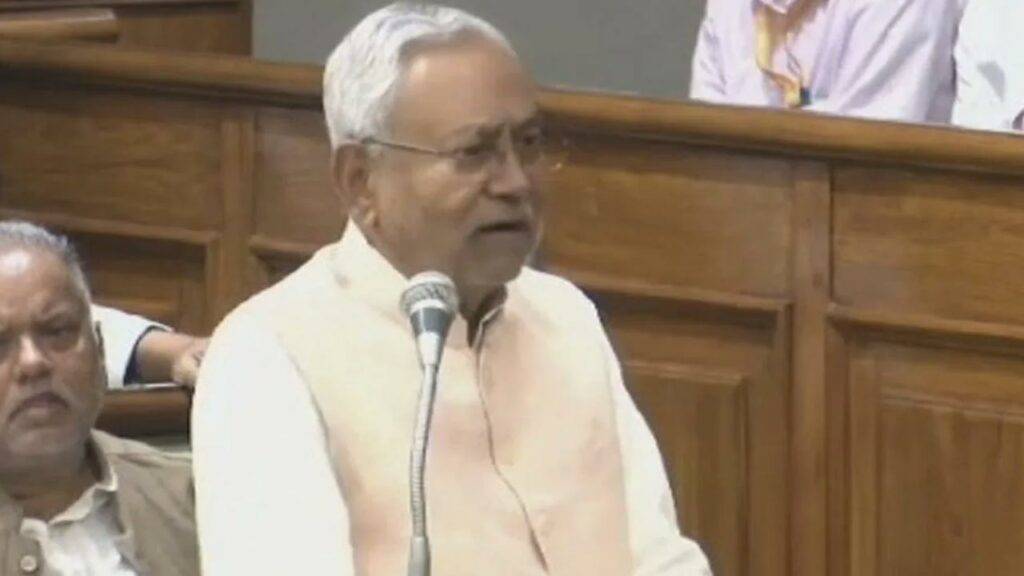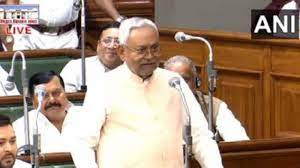Bihar Chief Minister Nitish Kumar’s recent controversial remarks on the role of women’s education in population control have ignited a heated debate. This article delves into what Kumar said, the subsequent apology, and the broader implications of his comments in the realms of politics and public opinion.

Nitish Kumar Comment
Bihar Chief Minister Nitish Kumar recently ignited a controversy with his comments on the pivotal role of women’s education in population control. While addressing the state assembly, Kumar vividly illustrated how an educated woman could potentially influence decisions regarding family planning.
He suggested that a woman’s education empowers her to make informed choices, including those related to reproduction. However, Kumar’s remarks have drawn criticism for their explicit nature, with some deeming them an invasion of privacy.
In response to the uproar, Nitish Kumar issued a public apology, acknowledging that his comments may have been misconstrued and expressing regret for any discomfort they may have caused. He clarified that his intention was to emphasize the importance of education, particularly for women, in making informed decisions about family planning.
The incident has sparked a broader conversation on the intersection of education, women’s empowerment, and population control. It serves as a reminder of the sensitivity surrounding discussions in this domain, highlighting the need for thoughtful and respectful discourse on such critical issues.
What Did Nitish Kumar Say?
During a recent address to the Bihar state assembly, Chief Minister Nitish Kumar made a statement that has garnered significant attention and sparked controversy. Kumar emphasized the pivotal role of women’s education in population control and family planning. In his remarks, he provided a vivid illustration of how an educated woman could potentially influence decisions regarding reproduction.
Kumar suggested that a woman’s education empowers her to make informed choices, particularly in matters related to family size. He implied that an educated woman might have more agency in guiding her husband’s decisions on this front.

However, Kumar’s choice of words and the explicit nature of his example have drawn criticism from various quarters. Critics argue that his statement may be perceived as an intrusion into personal matters and an inappropriate topic for public discussion.
The controversy surrounding Kumar’s remarks has sparked a broader conversation about the intersection of education, women’s empowerment, and population control, highlighting the complexity and sensitivity of these issues in societal discourse.
Nitish Kumar on Women’s Role in Population Control
Bihar Chief Minister Nitish Kumar recently stirred controversy with his remarks on the critical role of women’s education in population control. Speaking in the state assembly, Kumar emphasized that an educated woman holds significant sway in decisions regarding family planning.
He illustrated how a woman’s education empowers her to make informed choices, particularly concerning the size of her family. Kumar’s statement implied that an educated woman might exert greater influence in guiding her husband’s decisions on reproduction.
However, his choice of words and the explicit nature of his example generated criticism for potentially intruding into private matters. In response to the uproar, Kumar issued a public apology, acknowledging that his comments may have been misconstrued.
He clarified that his intention was to underscore the importance of education, especially for women, in making informed decisions about family planning. The incident has ignited a broader conversation on the intersection of education, women’s empowerment, and population control, underscoring the sensitivity and complexity of these issues in public discourse.



